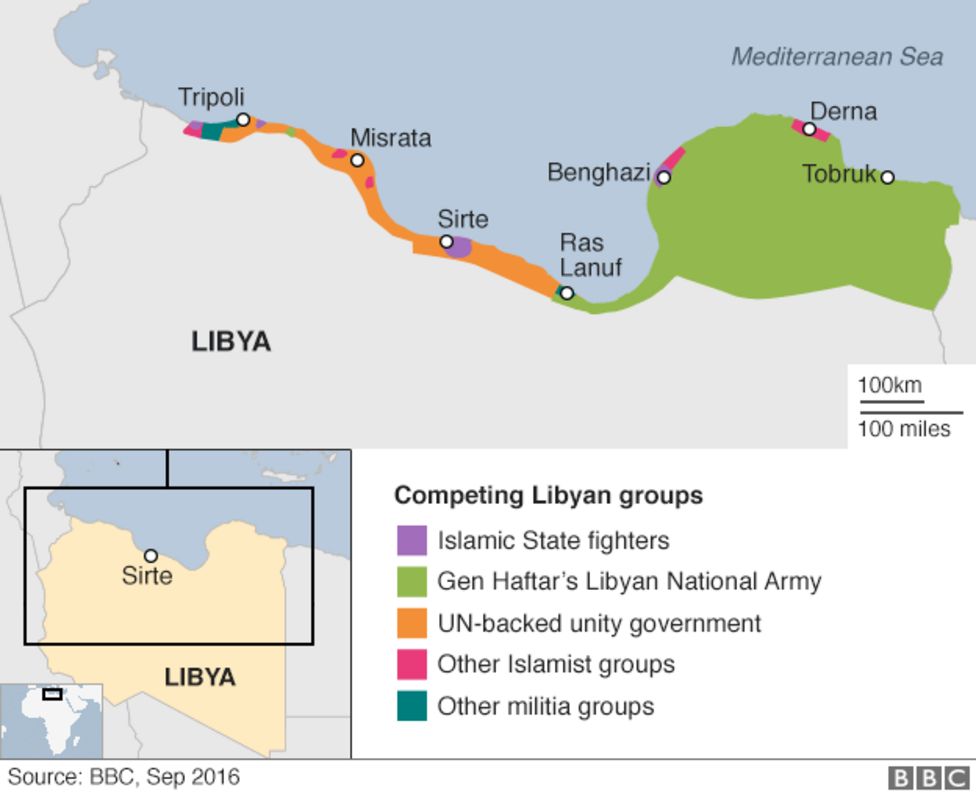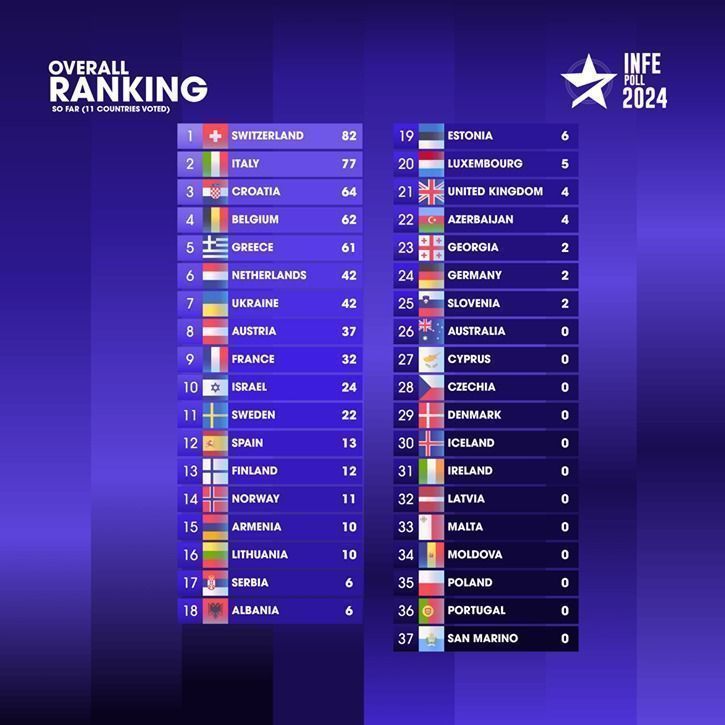Can Libya's Government Defeat Militias And Restore Stability In Tripoli?

Table of Contents
Libya's ongoing conflict presents a significant challenge to international peace and security. The question of whether the Libyan government can defeat the numerous militias operating within Tripoli and restore stability remains a critical concern. This article delves into the complexities of this issue, exploring the political landscape, military capabilities, and international involvement influencing the outcome. The fragility of the Libyan state and the enduring power of armed groups directly impact the lives of ordinary Libyans and threaten regional stability.
The Power and Influence of Tripoli's Militias
Diverse Militias and Their Motivations
Tripoli's security landscape is fragmented, characterized by a multitude of militias with diverse backgrounds, ideologies, and financial interests. Understanding these varied motivations is crucial to comprehending the challenge facing the Libyan government.
- Prominent Militias: Examples include the Nawasi Brigade, the Tripoli Revolutionaries Brigade, and various smaller, more localized groups. Their allegiances shift frequently, often based on opportunistic alliances and power dynamics.
- Funding Sources: Militias often finance themselves through smuggling networks, particularly of fuel, weapons, and people. Some receive illicit payments from businesses operating in Tripoli, while others may have access to state resources, further complicating the situation.
- Political Affiliations: The militias aren't monolithic; some are loosely affiliated with political factions within the Government of National Unity (GNU), others operate independently, and some actively oppose the government. This fractured political landscape hinders any unified approach to disarmament.
The fragmented nature of these militias makes negotiation and disarmament extremely difficult. Each group holds its own agenda, making a comprehensive solution elusive. The sheer number of militias and their shifting alliances create a constantly evolving threat to stability.
Military Capabilities and Control of Territory
Tripoli's militias possess a significant military capability, holding considerable sway over key infrastructure and resources.
- Weaponry and Training: They possess a range of weaponry, from small arms to heavier weapons, some acquired through smuggling and others potentially from previous conflicts. The level of training and organization varies considerably between groups.
- Control of Territory: Militias control specific neighborhoods and districts within Tripoli, often exerting influence over vital infrastructure such as ports, airports, and key roads. This de facto control gives them significant leverage over the government.
- Government Force Comparison: The Libyan National Army (GNA) and other government forces often lack the resources and capability to effectively challenge the militias in a direct military confrontation. Their control over resources further limits the government's ability to function effectively.
The Libyan Government's Capacity for Military Action
Government Forces' Strength and Weaknesses
The Libyan government's ability to effectively combat the militias is severely hampered by the weaknesses of its security forces.
- GNA Capabilities and Limitations: The GNA, while nominally the national army, faces significant challenges in terms of equipment, training, and logistics. Their capacity for large-scale operations is limited. Low morale among troops and lack of consistent payment also hinder operations.
- Logistical Challenges: The government struggles with logistical issues, including supplying its troops, transporting equipment, and coordinating operations across the city. This hampers their ability to effectively challenge the entrenched militias.
- International Partner Support: International support for the GNA is crucial, but the effectiveness of this support depends on the willingness of foreign actors to provide sustained and coordinated assistance.
Political Will and Internal Divisions
Deep-seated political divisions within the Libyan government significantly undermine its ability to effectively address the militia problem.
- Major Political Factions: Rival political factions within the GNU often prioritize their own interests over national unity, leading to indecisiveness and a lack of coordinated strategy to counter the militias.
- Power Struggles: Internal power struggles for control of resources and political influence further distract from the effort to address the militia threat. Competition for leadership roles diverts attention and resources from security issues.
- Internal Conflict Undermining Efforts: The potential for internal conflict within the government itself greatly weakens any anti-militia campaign and makes any coordinated approach impossible.
The Role of International Actors
International Support for the Libyan Government
International actors play a significant role, providing support to the Libyan government in various ways.
- Types of Support: This includes financial assistance, military training, diplomatic initiatives, and logistical support. The UN Support Mission in Libya (UNSMIL) plays a key coordinating role.
- Conditions Attached to Aid: International support often comes with conditions, such as promoting political reconciliation, reforming the security sector, and combating corruption. These conditions are vital for long-term stability.
- Effectiveness of Intervention: The effectiveness of international intervention remains a subject of debate. While some initiatives have shown success in promoting dialogue, others have failed to bring about meaningful change.
Challenges and Obstacles to International Involvement
International involvement faces significant challenges and risks.
- Failures of Past Interventions: Past interventions in Libya have often had unintended consequences, exacerbating existing conflicts or creating new ones. This cautious approach is understandable, though frustrating in its inherent limitations.
- Competing Interests: International actors often have competing interests in Libya, making coordinated efforts difficult. These conflicting agendas hamper the development of a unified strategy.
- Unintended Consequences: External military or financial intervention runs the risk of escalating the conflict, either by empowering one side unduly or by triggering unforeseen reactions from other militias.
Conclusion
The Libyan government faces a formidable challenge in its efforts to defeat the powerful militias operating in Tripoli and restore stability. The complex interplay of military capabilities, deep-seated political divisions, and the intricate dynamics of international involvement all contribute to the ongoing instability. The success or failure of this endeavor hinges on the ability of the government to unify its forces, build consensus among its political factions, and forge effective partnerships with international actors who are able to support, rather than undermine, a sustainable peace. Further research into the evolving political and military dynamics is crucial to understanding the path toward lasting peace in Libya. Further investigation of the dynamics between the Libyan government and its militias is needed to find sustainable solutions for lasting peace and stability in Tripoli. Addressing the root causes of the conflict, including economic grievances and political marginalization, is paramount to achieving lasting peace and stability in Libya.

Featured Posts
-
 Real Madrids Transfer Strategy Shifts After Mbappes Lackluster Arsenal Display
May 19, 2025
Real Madrids Transfer Strategy Shifts After Mbappes Lackluster Arsenal Display
May 19, 2025 -
 Predict The Eurovision 2024 Winner The Infe Poll Is Back
May 19, 2025
Predict The Eurovision 2024 Winner The Infe Poll Is Back
May 19, 2025 -
 Are Driverless Uber Etfs The Future Of Investing
May 19, 2025
Are Driverless Uber Etfs The Future Of Investing
May 19, 2025 -
 Cne Define Fecha Limite Inscripcion De Candidatos Sin Primarias
May 19, 2025
Cne Define Fecha Limite Inscripcion De Candidatos Sin Primarias
May 19, 2025 -
 Solve Nyt Connections Puzzle 627 February 27 Complete Guide
May 19, 2025
Solve Nyt Connections Puzzle 627 February 27 Complete Guide
May 19, 2025
